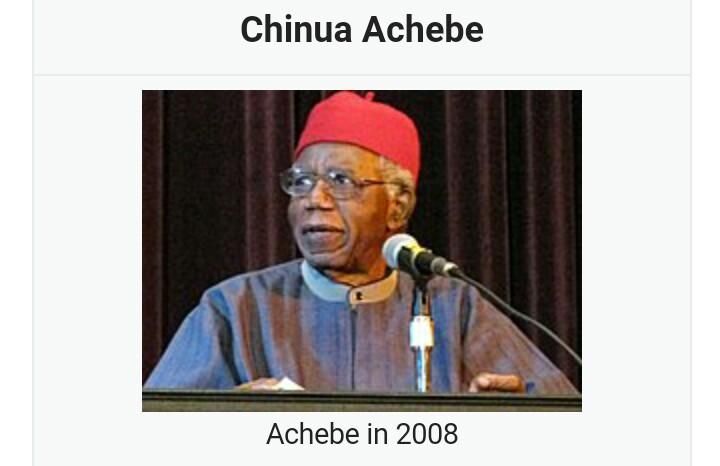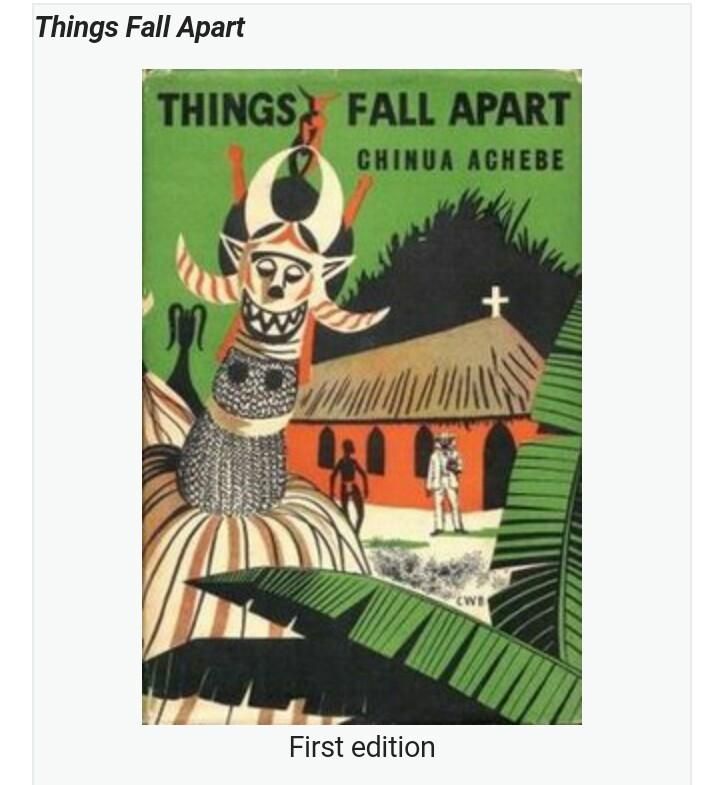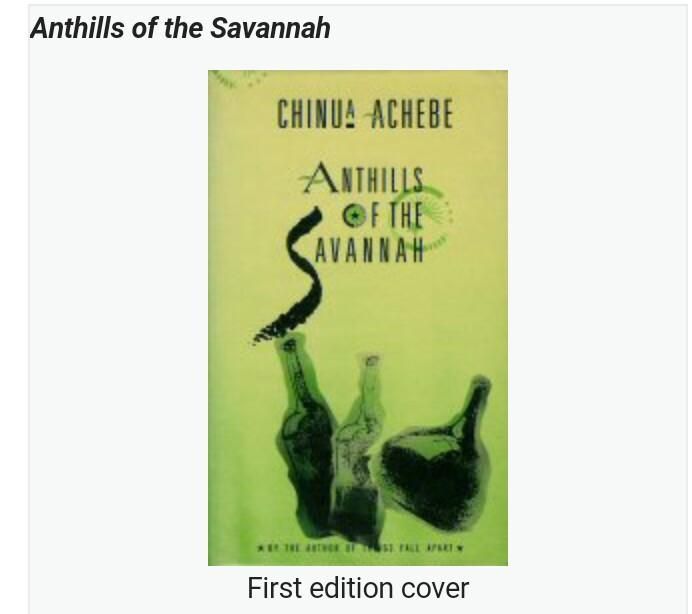The Legendary Writer Called Chinua Achebe
Jun 12, 2019 • 11 views
Chinua Achebe was born on 16 November 1930 at the then Ogidi, British Nigeria in the Southeastern part of Nigeria now known as Ogidi, Anambra, Nigeria and died on the 21st of March 2013. His first novel Things Fall Apart was first published in 1958. It related the story of pre colonial life in Nigeria and Europeans in the Nineteenth century. His later works are; No Longer at Ease, Arrow of God, A Man of the People, Anthills of the Savannah and many other notable short stories, poems, essays, criticisms. His frank portrayal of Africa, in the true African sense, not as the whites dreamed or imagined, brought acclaim. He criticised works that might have incited racism. There were many lessons learnt from his work and career.

Photo credit: Wikipedia
His sojourn to the literary world was not smooth and easy. Here are some facts you might not know about his career.
Admitted as a Major Scholar to study Medicine but left to study English, History and Theology after reading the book “Mr Johnson” by Joyce Cary
2) He decided to write a book after Cary's book because “If you don't like someone's story, write your own.” (Chinua Achebe).
3) He included Igbo proverbs in his novels. “Among the Igbo the art of conversation is regarded very highly, and proverbs are the palm-oil with which words are eaten.” — Chinua Achebe.
4) Copies of his first book were translated into various languages and sold millions.
5) Paved the way for other authors to follow, to express their views on Africa a place viewed in a savage, uncivilized light by the Europeans.
First edition of his first published book Things Fall Apart. Photo Credit: Wikipedia

First edition of his last book Anthills of The Savannah. Photo Credit: Wikipedia.

Chinua Achebe had helped to portray Africa through his literary works as a continent with people who have their own thoughts, as a continent with valuable cultures, traditions and intelligent minds. He showed the beauty of African languages by using his own language in the proverbs In his words “Nobody can teach me who I am.” He was right. Nobody can teach Africans who we are. We have to value ourselves first, our cultures, our languages and our pride in ourselves as a continent.“The last four or five hundred years of European contact with Africa produced a body of literature that presented Africa in a very bad light and Africans in very lurid terms. The reason for this had to do with the need to justify the slave trade and slavery.” — Chinua Achebe.
Addressed the political problems in Nigeria.
In A man of the people and Anthill of the Savannah, Achebe addressed and focused on the problem Nigeria had faced in the past and is facing in the presence in the hands of its leaders. The characters in the book portrayed the greediness, and selfishness shown by most politicians in post-colonial era in Nigeria. The two books showed the prevalence of bribery and corruption in the politics of our country.
Contributions to the African Literary Society.
China Achebe and his works contributed a great deal to the world of African Literature during and after the Colonial era, He enlightened and, at times, criticised those with negative - sometimes harsh views of African writers, Instead, he showed appreciation for Africans torn between African and Western cultures in the post-colonial era. provided a great influence in bringing African literature after the colonial eras to the world.
“Art is man's constant effort to create for himself a different order of reality from that which is given to him.” (Chinua Achebe). Indeed, Chinua Achebe had used his art which is writing to depict Africans as intellectual beings as opposed to the non-Africans versions of Africans being savages. According to him, “my weapon is my literature.” And he used it well. No matter what your art is, use it well, let it pass a message across.
